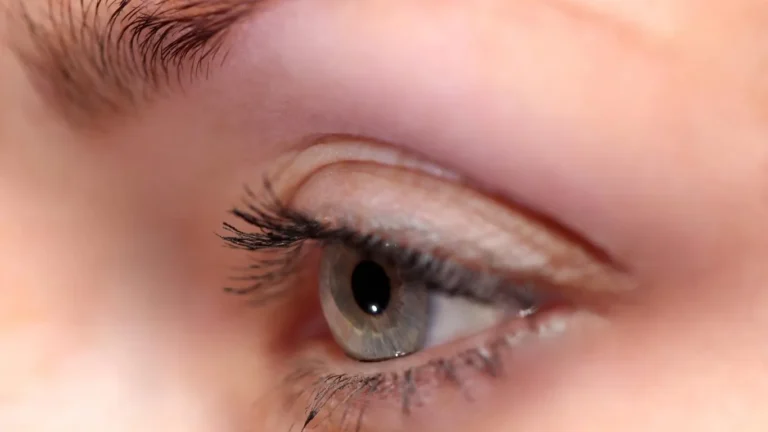Best Masks for Asthma Sufferers – A Complete Guide
Looking for a mask that’s both effective and comfortable for asthma sufferers? We’ve got your back! In this guide, we’ll dive into the best masks that protect your airways without compromising your comfort.
If you have asthma, choosing the right mask is crucial to make sure you’re not only protected from environmental factors but also comfortable while wearing it. It can be a bit of a challenge to find the right balance, especially since some masks might make breathing more difficult or even trigger asthma symptoms. That’s why we’re going to break down the best options available and what you should keep in mind when selecting a mask. Whether you’re heading outside on a dusty day or just want extra protection in crowded spaces, we’ve got all the details you need.

Why Masks Matter for Asthma Sufferers
When you have asthma, your airways are more sensitive to irritants like dust, pollen, pollution, smoke, and even cold air. Wearing the right mask can help filter out these triggers, reducing your chances of an asthma attack. Plus, some masks can help with keeping out germs and allergens, offering an extra layer of protection if you’re dealing with a respiratory condition.
Key Features to Look for in the Best Masks for Asthma
Before we dive into recommendations, let’s cover some of the most important features you should look for in a mask:
1. High Filtration Efficiency
A good asthma mask should be able to filter out harmful particles. Look for masks that filter at least 95% of airborne particles, including dust, allergens, and pollutants.
2. Comfort and Breathability
Since asthma sufferers need to breathe more easily, comfort is key. Choose a mask that allows you to breathe without feeling restricted, even if you wear it for an extended period.
3. Non-Irritating Materials
Asthma can make you more sensitive to certain materials, so opt for masks made from soft, breathable fabrics that won’t irritate your skin or airways.
4. Good Fit
A mask that doesn’t fit properly can let harmful particles through. Look for masks that are adjustable and can securely fit over your nose and mouth.
Best Masks for Asthma Sufferers
N95 Respirator Masks
The N95 mask is one of the most commonly recommended masks for asthma sufferers. It’s designed to filter out 95% of airborne particles, including dust, allergens, and pollutants. This level of filtration makes it highly effective at protecting your respiratory system.
Why It’s Good for Asthma:
- High filtration: N95 masks are specifically designed to block fine particles, including many asthma triggers.
- Comfort: While not as breathable as some other options, they’re still a solid choice if you need high protection in polluted areas.
Potential Drawbacks:
- It can be a bit harder to breathe through if you’re doing physical activity.
- Some may find the fit too tight or uncomfortable for prolonged use.
P95 or P100 Respirators
P95 and P100 respirators offer an even higher level of protection compared to N95 masks. These masks are designed to filter out 95% and 99.97% of airborne particles, respectively. They also provide protection against oil-based particles, which makes them a great option if you’re dealing with environments with chemicals or heavy pollution.
Why It’s Good for Asthma:
- Superior filtration: Ideal for environments with fine particulate matter.
- Durability: Can be used for longer periods without losing effectiveness.
Potential Drawbacks:
- Can be bulky and may not be ideal for everyday use in casual settings.
- Less comfortable for those who struggle with breathability, especially in high-intensity activities.

Cloth Face Masks with HEPA Filters
If you’re looking for a more comfortable option for everyday use, cloth face masks with integrated HEPA filters might be a good choice. HEPA filters are excellent at trapping small particles, making them effective for asthma sufferers who need protection from common irritants like pollen or dust.
Why It’s Good for Asthma:
- Comfort: Lightweight and breathable.
- Washable: Reusable masks are eco-friendly and budget-friendly.
Potential Drawbacks:
- HEPA filters can be bulky and may make breathing more difficult in some designs.
- Might not offer as high a level of protection as N95 or P95 masks.
Activated Carbon Masks
Activated carbon masks are designed to filter out harmful gases, odors, and pollutants, which makes them an excellent option if you’re sensitive to things like smoke or car exhaust. These masks typically feature a layer of activated charcoal that absorbs toxins in the air.
Why It’s Good for Asthma:
- Protection from odors and gases: Great for environments where irritants like smoke or fumes are common.
- Comfort: Typically lightweight and comfortable for long periods of use.
Potential Drawbacks:
- May not be as effective at blocking fine particulate matter (like dust or pollen).
- Some users report difficulty in breathing comfortably through thicker carbon layers.

Tips for Choosing the Right Mask
When you’re picking a mask as an asthma sufferer, consider these tips:
1. Test Fit and Comfort
Make sure the mask fits properly and doesn’t cause discomfort. The better the fit, the more effective it’ll be at filtering out irritants.
2. Check for Breathability
You want a mask that allows air to flow easily while still offering protection. Always test it to see if you feel comfortable breathing through it.
3. Consider the Environment
The type of mask you choose will depend on your environment. If you’re in a highly polluted area, you might want to go with a P95 or N95 mask. For everyday use in mild conditions, a cloth mask or one with a HEPA filter will do the trick.
4. Choose Reusable Options
Reusable masks can save you money in the long run and are often more comfortable. Just be sure to wash them regularly to maintain their effectiveness.
Conclusion
Having asthma doesn’t mean you have to avoid wearing a mask. The best masks for asthma sufferers will protect your lungs from harmful particles while still being comfortable and breathable. Whether you go with an N95 respirator, a cloth mask with a HEPA filter, or an activated carbon mask, make sure it fits well and suits your needs.
By selecting the right mask and following some simple tips, you can breathe easier while staying protected. Keep these options and tips in mind as you choose the best mask to fit your lifestyle and protect your health.

Appendices
References
- American Lung Association. (2024). Respiratory Protection: Choosing the Right Mask. Read Article
- Smith, R., & Davis, T. (2023). Asthma and Respiratory Protection. Journal of Respiratory Care, 27(4), 45-52. Read Article
- Centers for Disease Control and Prevention (CDC). (2024). Masks and Respiratory Protection for Asthma. Read Article
FAQs
- What type of mask is best for asthma sufferers? N95 masks are one of the best options, as they filter out harmful particles while still allowing you to breathe easily. Other good choices include P95 respirators and cloth masks with HEPA filters.
- Can I use a cloth mask for asthma protection? Yes, cloth masks with HEPA filters are a good option for everyday protection against mild irritants, though they might not be as effective in highly polluted areas.
- Are activated carbon masks good for asthma? Activated carbon masks can help with protecting against odors and fumes but may not be as effective for fine particulate matter.
- How often should I replace my asthma mask? Reusable masks should be washed regularly, and filters may need to be replaced after a certain number of uses depending on the manufacturer’s recommendations.
- Can wearing a mask make my asthma worse? A poorly fitting mask or one that’s hard to breathe through can make asthma symptoms worse. It’s important to choose a mask that fits well and allows you to breathe comfortably.
Disclaimer: The information provided in this article is for educational purposes only and does not substitute for professional medical advice. Always consult with your doctor or healthcare provider for advice tailored to your personal health needs.

Bianca Nala is a compassionate Nurse Practitioner with a strong background in primary and respiratory care. As a health writer for Healthusias.com, she combines her clinical expertise with a talent for clear, relatable storytelling to help readers better understand their health. Bianca focuses on topics like asthma, COPD, chronic cough, and overall lung health, aiming to simplify complex medical topics without losing accuracy. Whether she’s treating patients or writing articles, Bianca is driven by a single goal: making quality healthcare knowledge accessible to everyone.







